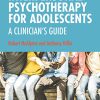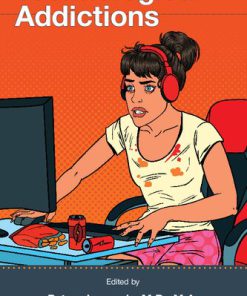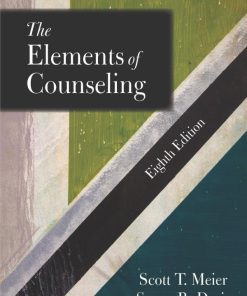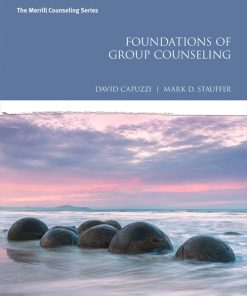Foundations of Addictions Counseling 4th Edition by David Capuzzi ISBN 0135166934 9780135166932
$50.00 Original price was: $50.00.$25.00Current price is: $25.00.
Foundations of Addictions Counseling 4th Edition by David Capuzzi – Ebook PDF Instant Download/Delivery: 0135166934, 9780135166932
Full download Foundations of Addictions Counseling 4th Edition after payment
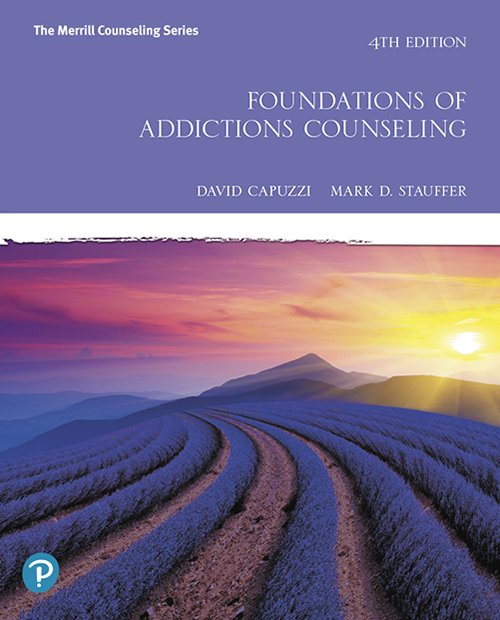
Product details:
ISBN 10: 0135166934
ISBN 13: 9780135166932
Author: David Capuzzi
A practical collection of tools and strategies for prospective addictions counselors that includes a solid foundation of research, theory, and history. Practical and comprehensive, Foundations of Addiction Counseling explores an array of techniques and skills that a new practitioner will need in the real world while providing a thorough review of the research, theory, and history of addiction counseling. With chapters written by expert scholars, this text covers many topics in depth often ignored by other comparable books, such as multiple chapters on cross-cultural counseling, professional issues in addictions counseling, the assessment of client strengths, gender issues in substance use, working in rehabilitation centers, and working with clients with disabilities. Combining practice, research, and theory, the 4th Edition of this unique text offers students the tools and strategies they need for successful practice. The revised edition includes new case studies, extended discussion in the chapters dedicated to substance and process addictions (Chs. 2-3), a thoroughly updated chapter on maintenance and relapse prevention (Ch. 13), and an expanded chapter on substance use and families (Ch 14). Also available with MyLab Counseling By combining trusted author content with digital tools and a flexible platform, MyLab personalizes the learning experience and improves results for each student. MyLab Counseling organizes all assignments around essential learning outcomes and the CACREP standards – enabling easy course alignment and reporting. Note: You are purchasing a standalone product; MyLab Counseling does not come packaged with this content. Students, if interested in purchasing this title with MyLab Counseling, ask your instructor to confirm the correct package ISBN and Course ID. Instructors, contact your Pearson representative for more information. If you would like to purchase both the physical text and MyLab Counseling, search for: 013516687X / 9780135166871 Foundations of Addictions Counseling plus MyLab Counseling with Pearson eText — Access Card Package, 4/e Package consists of: 0135166934 / 9780135166932 Foundations of Addictions Counseling 013518455X / 9780135184554 MyLab Counseling with Pearson eText — Access Card — Foundations of Addictions Counseling, 4/e
Foundations of Addictions Counseling 4th Table of contents:
Chapter 1 History and Etiological Models of Addiction
Approaches to the Prevention of Addiction in the United States
Current Policies Influencing Prevention
Models for Explaining the Etiology of Addiction
The Moral Model
Psychological Models
Cognitive-Behavioral Models
Learning Models
Psychodynamic Models
Personality Theory Models
Family Models
Behavioral Model
Family Systems Model
Family Disease Model
The Disease Model
The Public Health Model
The Developmental Model
Biological Models
Genetic Models
Neurobiological Models
Sociocultural Models
Supracultural Models
Culture-Specific Models
Subcultural Models
Multicausal Models
Summary and Some Final Notations
Useful Websites
Funding Opportunities
Funding Sources for Prevention Programs
References
Chapter 2 Substance Addictions
Substances of Addiction
Depressants
Alcohol
Sedatives/Hypnotics
Opioids
Stimulants
Nicotine
Ephedrine, Amphetamines, and Amphetamine-Like Medications
Cocaine
Cannabinoids
Hallucinogens and Other Psychedelics
Neurobiology and the Physiology of Addiction
Neurobiological Components of Addiction: Understanding the Reward Pathway
Neurobiological Research: Understanding Loss of Control and Continued Use
Physiological Components of Addiction
Summary and Some Final Notations
Useful Websites
References
Chapter 3 Process Addictions
Gambling Addiction
Technology Addiction
Internet Gaming Disorder
Sexual Addiction
Work Addiction
Compulsive Buying
Food Addiction and Disordered Eating
Summary and Some Final Notations
Useful Websites
References
Chapter 4 Professional Issues in Addictions Counseling
Counselor Competence
Comorbidity
Specific Populations
Clinical Knowledge of Polysubstance Disorder
Knowledge of Theory, Treatment, and Recovery Models
Boundary Violation Issues
Multiculturalism
Education
Counselors in Recovery
Counselors Who Have Never Been Users
Self-Care
Continuing Education
Credentialing
Certification
Licensure
Accreditation
Treatment and Research Issues
Managed Care, Treatment Funding, and Provider Reimbursement
Measuring Outcomes and Efficacy of Treatment
Future Trends
Positive Psychology
Unity Among Self-Help Groups
Changes in U.S. Drug Laws
Summary and Some Final Notations
Useful Websites
References
Chapter 5 Introduction to Assessment
Philosophical Foundations of Addictions Counseling
Hope
Strengths-Based Approaches
Holistic Approaches: Assessing the Whole Person
Spirituality
DSM-5 and Assessment of Disorder
ASAM and the Physiology of Addiction
Assessment Dimensions Related to Level of Care
Client Collaboration in Addictions Counseling
Multidisciplinary Approach
The Role of an Addictions Assessor
Key Points About Human Assessment
Motivation
Internal and External Triggers
Internal Consequences of Addiction
External Consequences of Addiction
Negative and Positive Consequences of Addiction
Expectancy
Empathic Connection and Rapport
Assessment Across the Treatment Process
Original Instrument Design and Purpose
Communicating Procedures and Results Clearly
Addictions Assessment Process
Structured, Semi-structured, and Unstructured Interviews
Gathering Background and Contextual Information
Client Presentation and Functioning
Current and Past Use and Addictive Behaviors
First and Historical Exposure
Prior Addiction and Mental Health Treatments
Family Systems, and Peer Relationships
Summary and Some Final Notations
Useful Websites
References
Chapter 6 Assessment and Diagnosis of Substance-Related and Addictive Disorders
Diagnosing Using DSM-5
Substance-Related Disorders (SUDs)
Gambling Disorder (GD)
Why Use Standardized Assessments?
Philosophical Underpinning of Instrument Construction
How to Know Which Screen to Use
Sensitivity and Specificity
Reliability and Validity
Time/Cost Efficiency
Substance Use Disorder Instruments
Self-Administered, Stand-Alone Screening Instruments
Substance Abuse Subtle Screening Inventory–4 (SASSI-4)
Michigan Alcoholism Screening Test (MAST)
CAGE
Alcohol Use Disorders Identification Test (AUDIT)
Alcohol Use Inventory (AUI)
Counselor-Initiated Comprehensive Substance Abuse Assessment
Addiction Severity Index (ASI)
Instruments Designed to Assess Alcohol Misuse During Pregnancy
T-ACE
Tweak
Summary of Substance Use Disorder Screens
Gambling Disorder Instruments
Other Process Addiction Instruments
Summary and Some Final Notations
Useful Websites
References
People also search for Foundations of Addictions Counseling 4th:
foundations of addictions counseling
foundations of addictions counseling 4th edition free
foundations of addictions counseling 4th edition citation
foundations of addictions counseling 4th edition ebook
foundations of addictions counseling the merrill counseling series
Tags: David Capuzzi, Foundations, Addictions
You may also like…
Jurisprudence & Law - General & Miscellaneous Law
Psychology - Psychological Disorders
Grief Work in Addictions Counseling 1st Edition Susan R Furr Kathryn Hunsucker
Uncategorized
Psychology - Psychotherapy
Romance - Historical Romance
Psychology - Psychotherapy
Politics & Philosophy - Social Sciences

